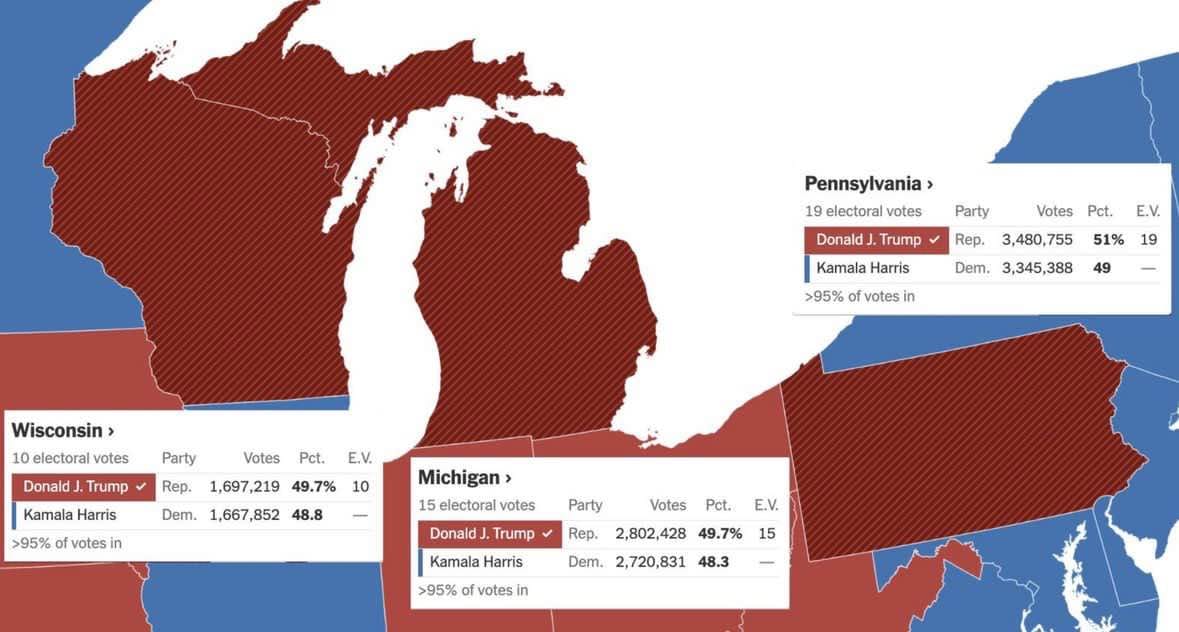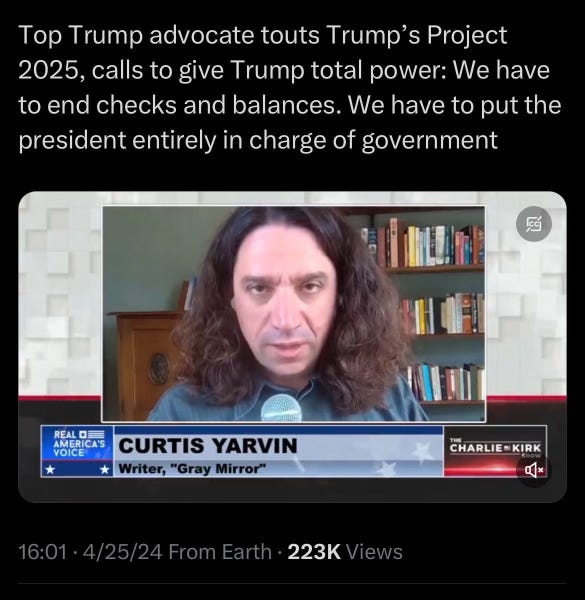- a newsletter
- Posts
- Disappointed and vexed
Disappointed and vexed
Making sense of Tuesday
THESE are the times that try men's souls. The summer soldier and the sunshine patriot will, in this crisis, shrink from the service of their country; but he that stands by it now, deserves the love and thanks of man and woman. Tyranny, like hell, is not easily conquered; yet we have this consolation with us, that the harder the conflict, the more glorious the triumph. What we obtain too cheap, we esteem too lightly: it is dearness only that gives every thing its value. Heaven knows how to put a proper price upon its goods; and it would be strange indeed if so celestial an article as FREEDOM should not be highly rated.
If I had to encapsulate my feelings Wednesday morning when I checked the news, it wasn’t horror or panic.
I was, simply…
Disappointed, perhaps even a little vexed— yes, that’s a good word. vexed.
Now, five days later, I’m still disappointed and vexed, but I have also begun to develop some perspective. The worst response to have here is one of contempt—contempt for Trump or those who voted for him. Contempt is an ugly, indulgent feeling. It is othering. It makes us unable and unwilling to learn and understand, which is the task now.
Instead, try to be curious. How did this happen? Why did this happen? Race and gender have little to do with it; the data, so far, does not bear that out. Republicans made gains across every demographic, no matter how you slice it. Rural areas, suburbs, and major cities? Gained 3, 5, and 10 points on average per Derek Thompsons’ podcast this past week. As best as I can tell, he made gains across every demographic, from Latin men to white women. Sometimes, those gains were significant, generally small, but ultimately enough to swing the election.

About 140,000 votes across three states seem to have made all the difference.
Ultimately, he will still have won the popular vote by roughly 1.5 percent, by my most recent count. The last time Democrats lost the popular vote I had just started high school.
How did this happen? Am I smarter than 70 million Americans? I suspect that’s the easy answer I can tell myself and move on about my merry day in smug self-satisfaction and contempt.
Let’s not be that way; it’s gross, it’s lacking in virtue. You know better.
Instead, let’s reflect. How did this happen? I’m still trying to work through that and what the future looks like. There’s a chance to learn here.
Below are some articles, essays, and podcasts I’ve listened to this last week to help me make sense. I hope they help you too.
This essay, authored by a friend of a friend I know only as “Andy, the political scientist,” is a bit longer and wonkish but a good reflection. I believe it will prompt self-reflection in you, too, dear reader, and self-reflection we must. Democracy is not something we do once a tear for 90 minutes; it must be a continual act of engagement.
If there is a defining public voice in the progressive movement, it's Ezra Klein, in my view. While I don’t self-identify as a progressive, Ezra consistently shows himself to be thoughtful in his commentary, and this is perhaps the best take I have contemplated since Tuesday.
This is an interview with a historian who spends much of his time thinking about Athens, the cradle of democracy, what we can learn from our forebears, and how their experience relates to modern-day institutions.
I enjoy David Frenchs’ column. I’m fairly certain he and I share few political worldviews, but we do seem to share values, and if you have common values, you can collaborate and build with them. David lays out what he sees as the cause, challenge and potential next steps. The mission, he posits— is to shorten the darkness. I suspect, he’s right.
This is the most provocative piece here, but it is the most important. I read this weeks ago, and it’s stuck in my head. I have been unable to stop thinking about it because I suspect he is right. You will likely have an adverse knee-jerk reaction to what he lays out here, but read on anyway because I think what Curtis lays out here lies at the root of why Trump won. Curtis makes the case for a Monarchical executive, and, well…
I was hoping you could give me a bit; I’m still chewing through it.
In the meantime, what do you think? Why did the Democrats lose? What can we learn?




